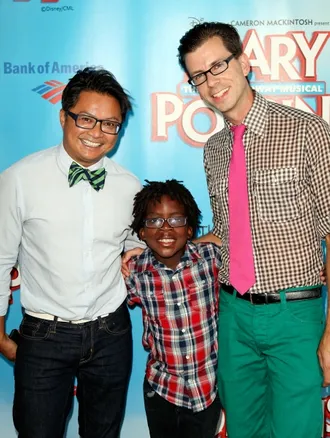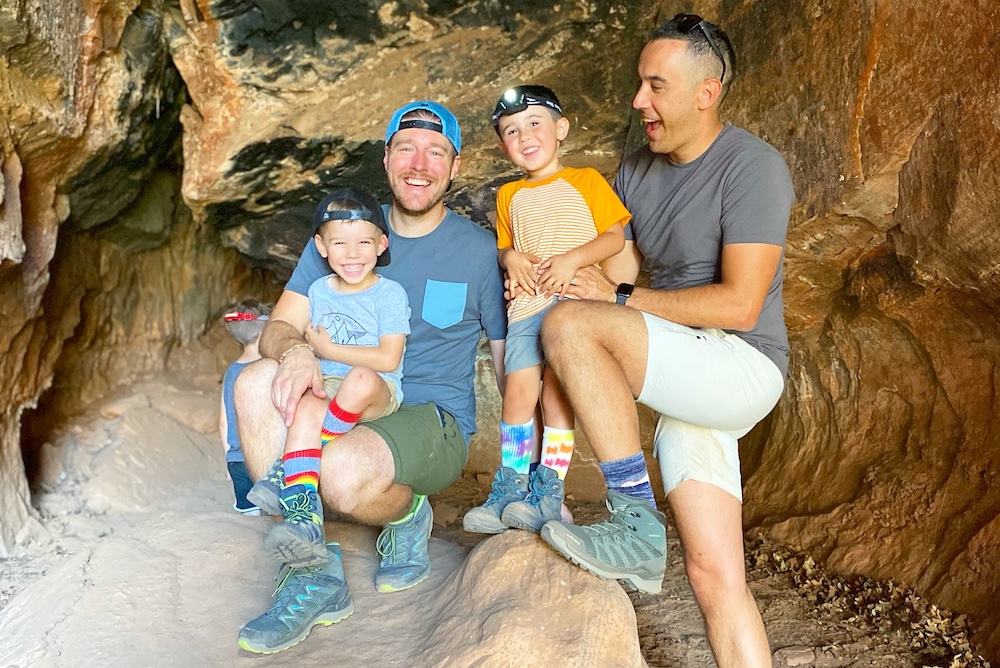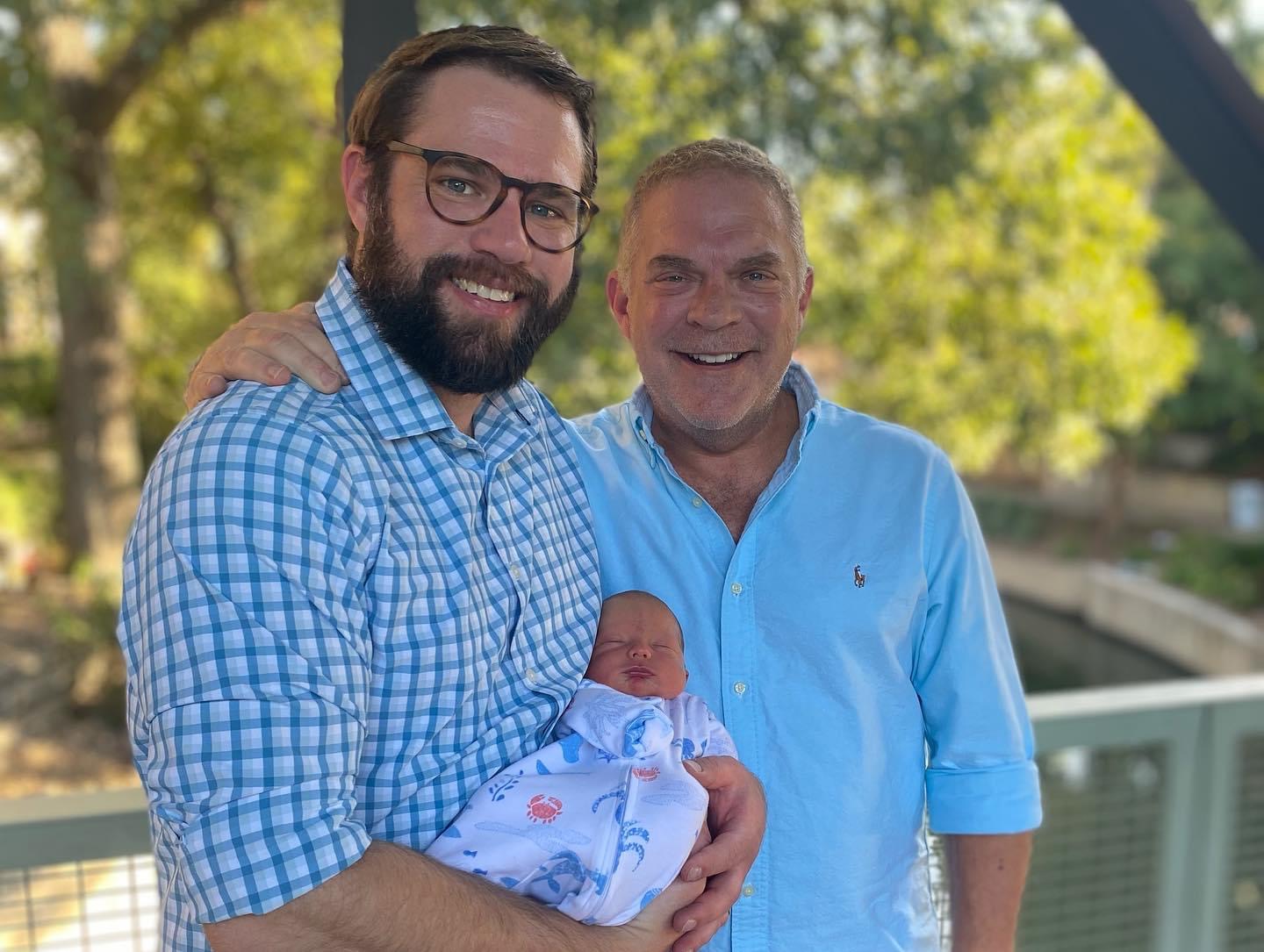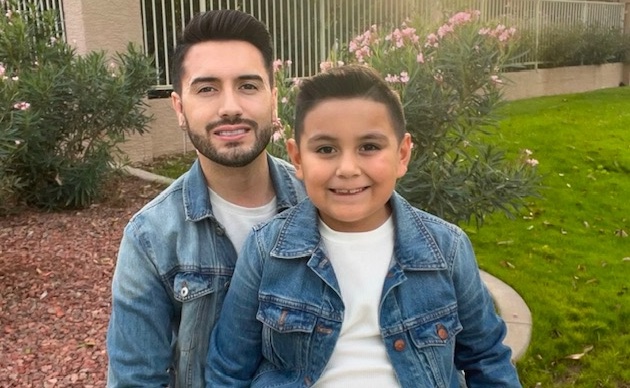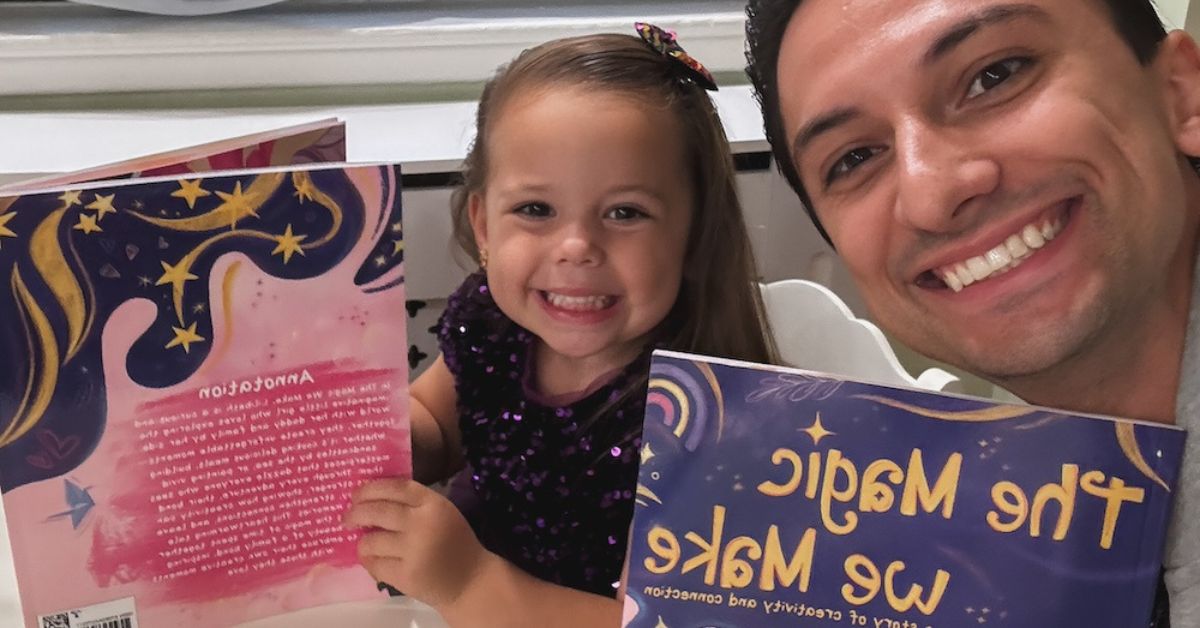Thank you, Rosie!
“I was booked to perform at one of her R Family Vacations cruises in 2007,” recalls actor Alec Mapa, telling Gays With Kids that he and husband Jamie Hebert were surrounded by so many LGBT families that they just knew fatherhood was in the cards for them, too.
“I met a social worker on the ship specializing in helping LGBT families find foster-adopt placement,” Mapa continues, describing how he got her card and promptly lost it back on land in the junk drawer that is his garage. What happened next was kismet.
“So, when I was finally ready to call this woman, I realized that card was in a box somewhere in that garage! And I reached into a box, and the first thing I touched on was that card. We went to meet her at the Extraordinary Families agency, we took the foster-adopt courses … and nine months later we had a kid living in our house.”
Many Roads, One Destination
If you don’t know “America’s Favorite Gaysian,” you know his face: Mapa’s resume is catalog of critically-acclaimed comedy, from “Desperate Housewives” and “Ugly Betty” (where he played the hyperkinetic Suzuki St. Pierre) to “Devious Maids” and “The Gossip Queens.” He met producer Hebert on the set of his one-man show “Drama” in 2002 and the two have been an item ever since, marrying in 2008.
But this journey to fatherhood differs from most. When Zion came into their lives, he was the kind of kid most prospective parents don’t touch: He was African-American, he was a boy, and, at age five, he was old. Moreover, he was a foster-child, meaning his birthmother had not yet signed away her parental rights. To top it off, he had already been placed with four other families before Alec and Jamie got a hold of him.
“And were like, ‘This is our kid! We’re not giving him back!’” Mapa, 51, laughs. “Three months into our foster placement, he had the TPR — termination of parental rights — and nine months later, he was ours!”
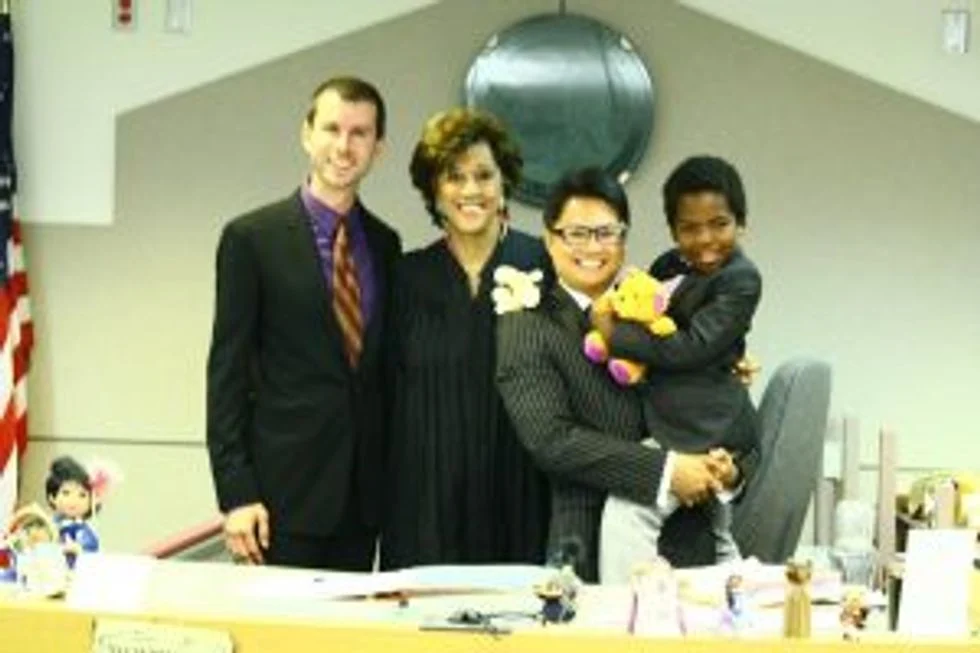
The Road to Hell …
Foster care and adoption are two different legal animals. The latter completely and permanently signs over the rights and responsibilities of the child from the birthparents to the adoptive parents. The child takes the surname of their new family and loses all automatic rights of inheritance with the old. A foster child can, and often does, maintain ties with their biological family even while in the care of another, and the biological parents have the final legal say in decisions concerning their child. Additionally, fostering lacks the permanency of adoption; children often shuffle from one foster family to another until they reach the age of 18, whereupon they are effectively cut loose.
For all the good intentions, it is no secret American foster care is overburdened, with up to 250,000 children entering yearly. It’s not all doom and gloom; 33 percent are back with their families within 11 months, and only seven percent of foster kids remain in care for more than five years. However, the longer a child stays in, the harder it is to get out. Chances for permanent placement drop drastically for children over five, siblings, children of color, and for self-identified LGBTQ youth. Some leave the system only after “aging out” of it, and can face the possibility of being family-less.
“The children in foster care deserve better,” says Rich Valenza, founder and CEO of Raise A Child, Inc., a foster-adopt advocacy and education resource for prospective LGBTQ parents (and for which Mapa is now a spokesperson). “Given the numbers, the solution to the foster care crisis is within reach and the answer is right here within the LGBT community.”
The numbers to which Valenza refers come from a 2013 study conducted by the Williams Institute, a think tank at UCLA Law, confirming no significant difference in children raised by straight and LGBTQ parents, and stated two million gay, lesbian, and bisexual people express an interest in foster parenting. That number dwarfs the 400,000 children in the American foster care system, 104,000 of whom are available for adoption as of this writing.
Adds Mapa, “When we were talking about adoption, I wanted a baby. And when we met Zion, he was five and that was a baby. When you are five, you still need your mommy, you still need your daddy. Or two guys with a really cute house!”
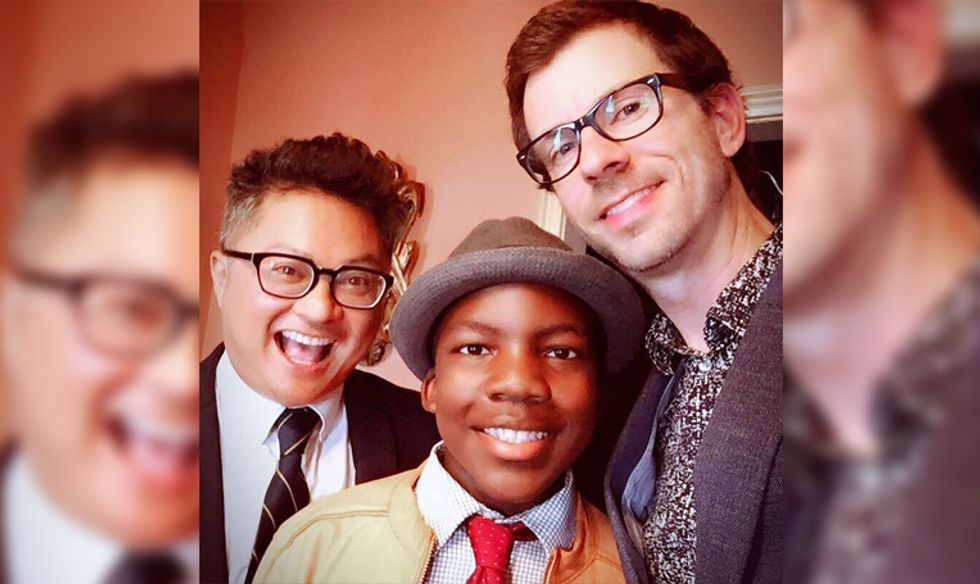
E Pluribus Unum
Despite the cautionary statistics of older children’s bonding abilities, Zion segued seamlessly into the Mapa-Hebert household. Along the way, he inadvertently became the finishing touch to a very American family: Mapa is Filipino, Hebert is white, and Zion is black. You want a poster-family for multiculturalism? You got it.
“There was a big adjustment period because he was afraid, and he didn’t know who we were and we didn’t know who he was,” Mapa remembers, adding that they had to foster the boy before adoption took place. “But — I’m not kidding — two weeks later, it was like we had always been together. We had our routine down pat, he had his room set up, and it was like we always had a kid. I can’t explain it any other way; it’s like we’ve always been together.”
But it would be remiss to skip the fact Zion did something of an atypical 180: Not only did he have a family almost overnight, it was same-sex and a famous one to boot. Going from foster care anonymity to Hollywood spotlight can be jarring to say the least, but Mapa points out that it is the only life Zion has known for the majority of his now-11 years. It helps that neither Mapa nor Hebert are tabloid-fodder, are selective about when they appear in the public eye, and if Zion should be with them when they do.
“We always go to a lot of fundraisers for LGBT families with Zion in tow,” says Mapa. “He is such a ham; he loves the step-and-repeat.”
Kids These Days!
And to his credit, Zion got his head around having two dads fairly quickly … if in the way only children can. Mapa tells Gays With Kids that when a classmate asked Zion why he had two dads, his reply was “Because we’re French!” (Hebert is Cajun.)
“It’s not complicated for children,” Mapa says. “We’re aren’t the only same-sex couple at the school, and for kids, when they see you have two dads, they don’t care. It’s adults who make it complicated.”
But there was one moment Zion had to be taken aside.
“My son gave me a Father’s Day card,” Mapa recalls. “He never wrote anything to me like this before, he said ‘Thanks for saving me.’ And I had to tell him that I didn’t save him, he saved me. He made us a family, and he gave me the rest of my life. Before Zion came along, I didn’t know what the rest of my life was going to be about. So I was all ‘Thanks for the thanks, but you got it backwards!’”
